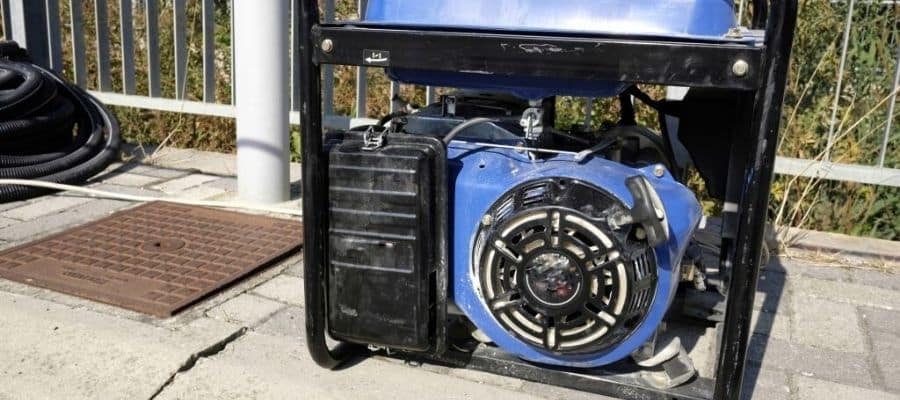
There are so many household activities that requires a fridge or freezer. It is important that it’s always running. While running the refrigerator with a generator, you might be wondering if it’s a good idea.
A refrigerator usually uses between 800-1200 watts of power, but the watts may vary depending on the size of the refrigerator. So, if you have a smaller refrigerator, it’s possible that your fridge could use a little less power than a larger one. here is a post about what size generator do you need to run a refrigerator and freezer?
The power of a generator is measured in watts and you must be sure that your generator is capable of supplying enough power to your refrigerator. The rule is the same whether you use a indoor battery power generator or not.
How a Generator Can Damage Your Refrigerator?
A generator is one of the safest power sources to run your refrigerator. You’re looking for an answer to the question “can a generator damage a refrigerator?” The answer varies based on the situation. If the generator that you are using can provide sufficient watts of power, there won’t be any problems with your refrigerator.
It could damage your refrigerator if it is not able to provide the sufficient amount of power. The compressor, expansion valve, and other parts of your refrigerator could be damaged if it doesn’t get enough power.
When purchasing a household appliance that requires power, you must first ascertain its power rating. Then based on the size, capacity the power consumption of the product could vary. A household appliance uses 3-4 times the amount of power to start as it does to run. The starting wattage is going to be 3,200 if the running wattage is 800.
If the size of the fridge changes, the power consumption of the refrigerator could change as well. If you want to buy a generator for your refrigerator, be sure the generator can take the amount of energy that a refrigerator uses. If overloading happens, an electrical spike could occur and damage the parts of the refrigerator.
Usually, sensitive items are at high risk of being damaged by the generator’s current, such as laptop, smartphone, etc. A generator can’t damage a refrigerator, but you don’t need to worry about it, because a refrigerator is not a sensitive device. The only thing you have to be careful about is using a generator that can deliver the higher power wattage than what is used by a refrigerator.
So, Is It Safe To Run a Refrigerator On a Generator?
You should be able to use most portable generators to run your refrigerator with ease. Sensitive electronics such as laptop computers or home audio systems indeed need clean sine current to function properly.
As a result, inverter generators are the only foolproof way to power them. Refrigerators, on the other hand, are a different breed. A refrigerator or freezer is not considered a sensitive appliance (except few). They can be securely operated with a standard open frame generator or indoor battery powered generators.
Overloading a generator can damage your appliances. Running unnecessary appliances and electronics equipment could cause them to burn out. If you need to know how much current in watts an appliance draws, multiply the volts times the amps.
Read Next:
- Dual Fuel Generators – Reviews & Comparisons
- Refrigerator Tripping GFCI on Generator – Why?
- Top 11 Reasons Why Your Generator Won’t Start & What to Do?
